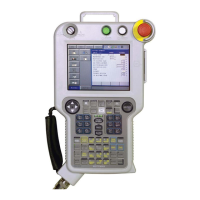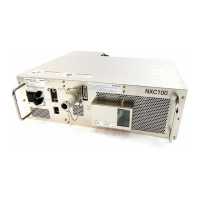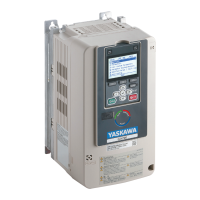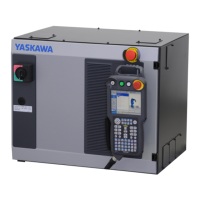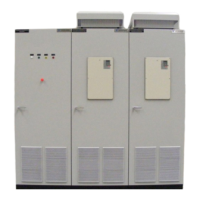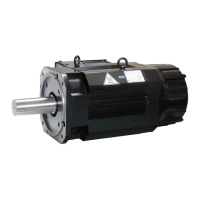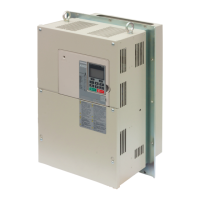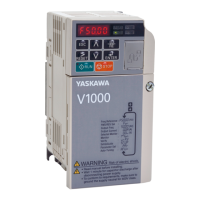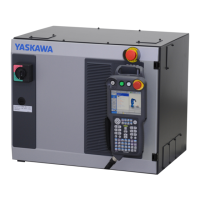3 Teaching
3.9 Other Job-editing Functions
3-80
149235-1CD
RE-CSO-A031
3.9.5 Editing Local Variables
User variables and local variables can be used in the storage of counters, calculations, and input
signals. The data format is the same as that of user variables. As shown in the following table, the letter
L is affixed to the variable number to indicate a local variable.
Local variables differ from user variables in the following four ways:
• Used in One Job Only
With user variables it is possible to define and use one variable in multiple jobs, but local
variables are used only in the one job in which they are defined, and cannot be read from
other jobs. Accordingly, local variables do not affect other jobs, so it is possible to define a
variable number (such as LB001) separately in different jobs, and use it in different ways
in each of these jobs.
• Able to Use Any Number of Variables
The number is set in the JOB HEADER window. When the number is set, the area for the
value is saved in memory.
Local Variables
Data Format Variable No. Functions
Byte Type
LB000 to
LB
Range of storable values is from 0 to 255.
Can store I/O status.
Can perform logical operations (AND, OR, etc.).
Integer Type Ll000 to
LI
Range of storable values is from -32768 to 32767.
Double Precision
Integer Type
LD000 to
LD
Range of storable values is from -2147483648 to
2147483647.
Real Type LR000 to
LR
Range of storable values is from -3.4E+38 to 3.4E+38
Accuracy: 1.18E-38 < x ≤ 3.4E+38
Character Type LS000 to
LS
Maximum storable number of characters is 16.
Position
Type
Robot
Axes
LP000 to
LP
Can store position data in pulse form or in XYZ form. XYZ
type variables can be used as target position data for
move instructions, and as incremental values for parallel
shift instructions.
Base
Axes
LBP000 to
LBP
Station
Axes
LEX000 to
LEX
LB001
Local Variable
LB001
Local Variable
Job 1 Job 2 Job 3
B001
User Variables
Job 1 Job 2 Job 3
Local Variables
LB001
User Variable
Local Variable
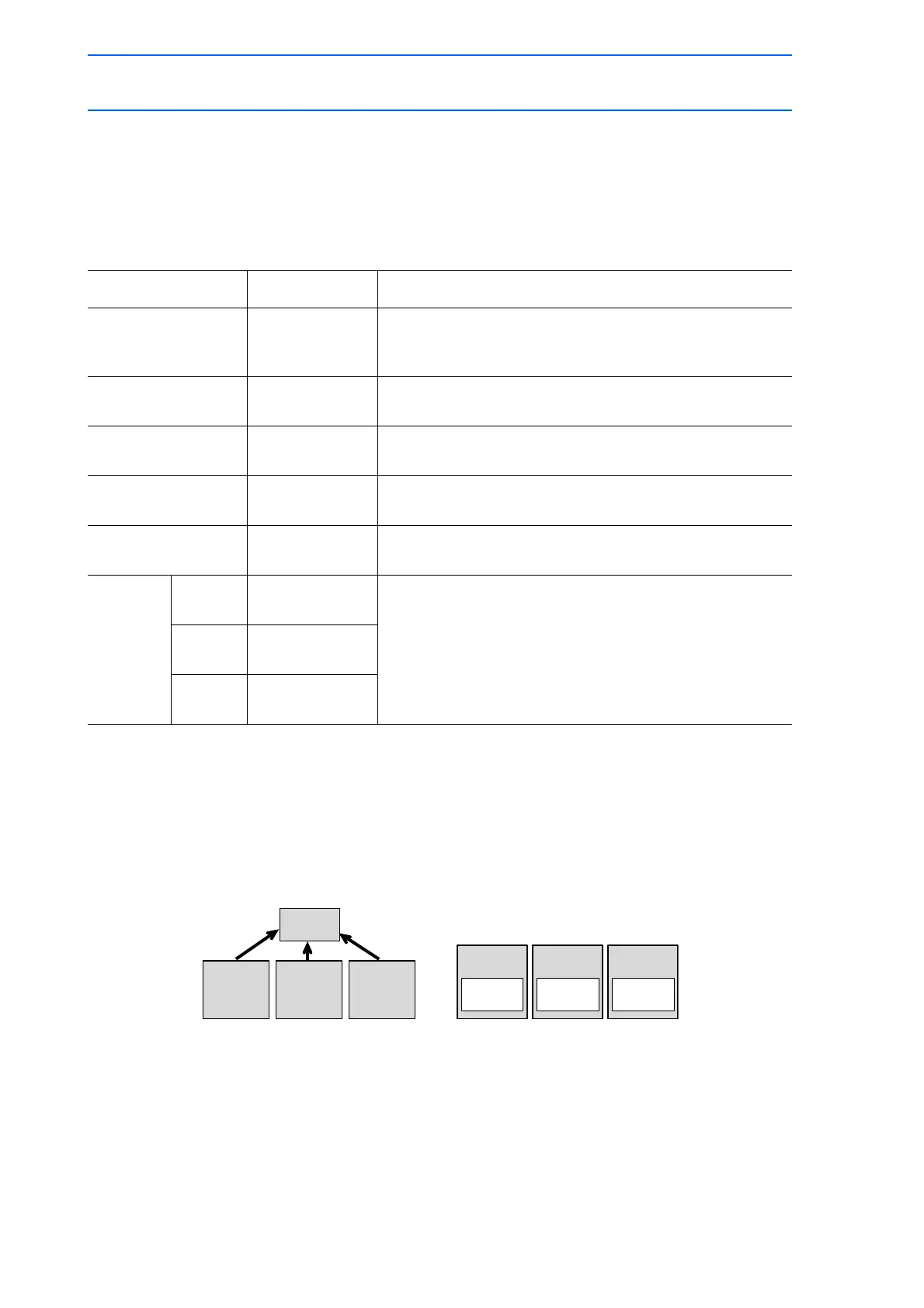